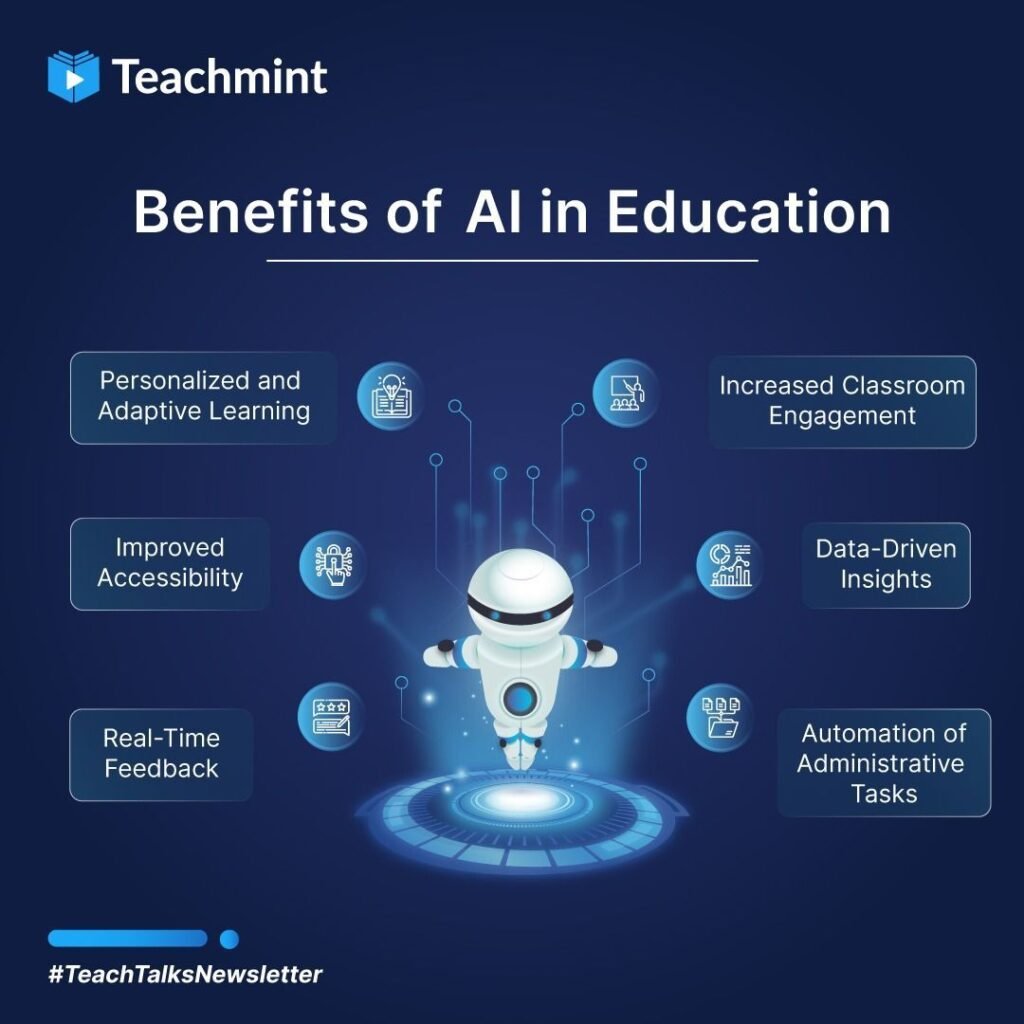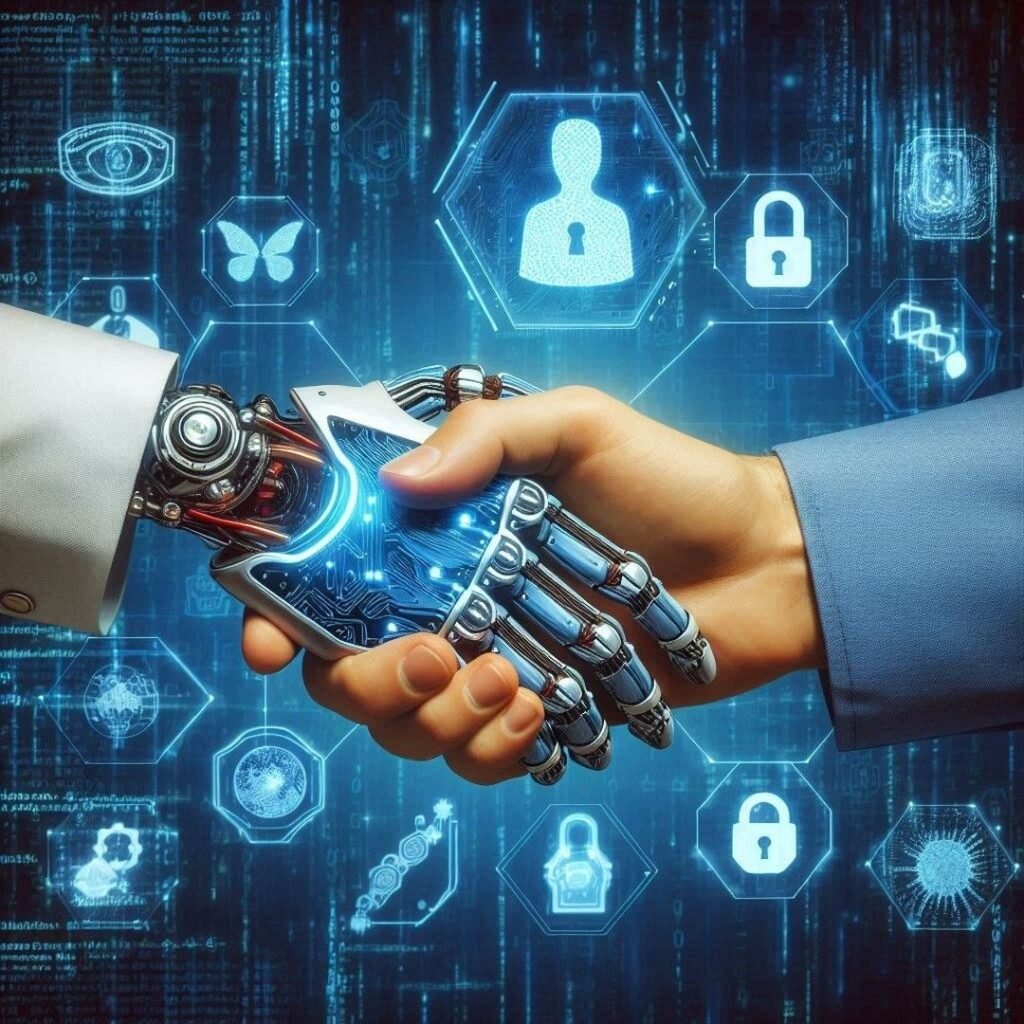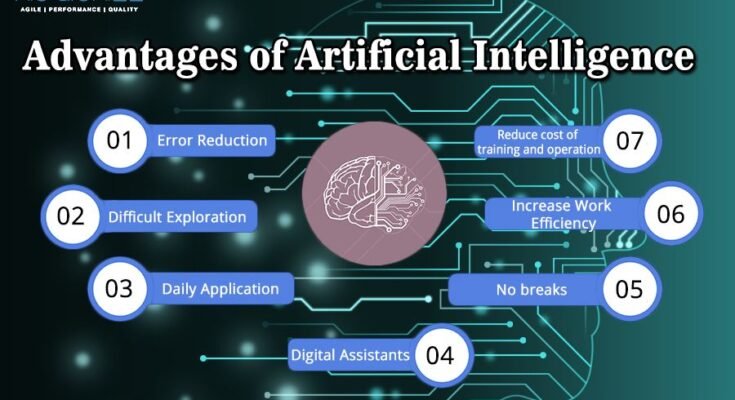The Advantages of Artificial Intelligence (AI) has gone from being something that we imagined to be one of the future, to something we now understand to be a very powerful tool that is changing every way of modern life. Whether its in health care, transportation, education or entertainment, AI is changing and shaping every way we live and work. This article will outline the major benefits of AI, and how it is providing innovation, efficiency and change in almost every industry imaginable.
1. Increased efficiency and productivity

One of the major benefits AI have is that it does work more efficiently and more accurately than many tasks that humans do. AI driven systems can sort and process vast amounts of data in real time, automate menial tasks that are repetitive and make decisions in some cases with some type of human interaction. The end result is improved productivity especially in core areas such as manufacturing, logistics and customer service.
AI algorithms can for instance optimize supply chains and order placement on behalf of robotic processors, track time for scheduled maintenance for a piece of machinery, and extract meaningful feedback from the varying inquiries submitted by customers at any time of the day through a chatbot. These examples have the potential to drastically decrease downtime in operations, leading to lower operational costs and providing the potential to focus on more strategic tasks.
2. Enhanced Decision-Making
AI is good at taking information and identifying patterns from data that are not easily identifiable to humans. Within finance, marketing, and business intelligence, AI can help organizations make better decisions by identifying patterns, potential outcomes, and making savvy recommendations to aid in future decisions.
AI-driven predictive modeling allows organizations to make predictions based on data provided. This way, organizations are able to predict market changes, pricing adjustments, and risk management. Having data to help make decisions makes decisions less subjective, timely and more accurate.
3. Improvements in Healthcare
In the healthcare field, AI is providing some significant upgrades for improved diagnoses, better-informed treatment plans, and optimization of time and efficiency in hospitals. Machine learning models can analyze medical imagery and find diseases like cancer sooner and more accurately than other traditional means. AI-powered technology opens up doors for doctors to identify complex conditions, limit errors on behalf of humans, and allow for timely intervention.
Further, AI is additionally helping with drug discovery and development. It can find compounds, analyze them, and simulate them as research looks to find better ways to find cures and treatments needed. There is a time and cost saving in the overall efforts to bring new drugs to market.
4. Improved Safety and Risk Management
In high-risk spheres such as aviation, construction, and mining, improved safety via AI means monitoring environments, increasing predictive capabilities around equipment failure, and reducing human exposure to dangerous tasks. For example, many newer autonomous vehicles utilize AI to avoid or navigate around potential hazards, manage traffic, all with an end goal of reducing potential accidents – and ultimately, deaths in future.
Additionally, in cybersecurity, AI is incredibly useful for both identifying threats, reducing the risk of breach, and rapidly mitigating attacks compared to conventional solutions.
5. Personalized User Experiences

AI is responsible for our many present-day personalized experiences as consumers. From recommended content on streaming platforms (e.g., Netflix) , to product recommendations through e-commerce, to tailored ads on social media, AI algorithms are designed to learn user preferences, and deliver user-centric and relevant value. For e-commerce specifically, AI not only offers personalized product recommendations, but can optimize the user journey ephemerally – meaning all products during the search phase of the internet, and improve overall satisfaction of customer, resulting in a transactional value exchange (and profit).
Voice assistants like Siri, Alexa, and Google Assistant, while being marketed as an intermediary Communication devices between a user and a business or personal agenda, has utilized an AI engine – through Natural Language Processing (NLP) – to reserve, obtain or perform a task for the user.
6. Support of Learning and Education
AI is providing educational areas with supportive learning environments with adaptive learning frameworks that can provide students with access to personalized learning experiences that can adapt content and pace based on the needs of each student. This engages with students around challenging concepts which contribute to their learning, and develop their engagement and/or consider opportunities for students who are behind to catch up. Teachers will benefit from AI too, grading will become easier and they will have data about how students are placed during lessons and before and after assessments.
AI can also provide better access to education by providing translation capabilities, making it available in text-to-speech or other ways and provide improvements to students with disabilities.
Conclusion
AI has fantastic benefits to humanity that are redefining industries and implicating the future of what is possible. Ethical implications and considerations for use are safe. The opportunity to utilize AI for increased efficiency, safety, decisions, and personalization cannot be disregarded. As AI technology improves then the possibilities for it to amplify human capability will become better and better and will create better use of resources for addressing problems through innovation. In order to create a connected, smarter future we must embrace AI with caution.



